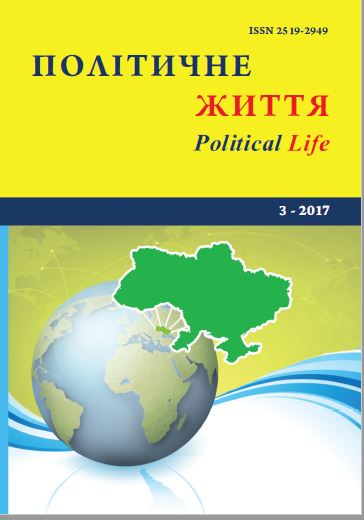Genocide as the act of social engineering.
Keywords:
genocide, perpetrators, social engineering, RwandaAbstract
The article proves that a genocide is the attempt of perpetrators to change the existing reality according to their own project of “better future”; in this respect, they consider a genocide as the act of social engineering. The thesis that a genocide has a well-defined purpose can be specified with the examples from the history of different countries (Rwanda, in particular). The author argues that the goal of a genocide is to achieve what “must be” instead of “what exists”. Guided by the conclusions of international law, D. Dovhal states that the intention of the committed actions, the goal of political mobilization and actions are crucial points for defining the nature of the genocide. In order to achieve changes, perpetrators kill “strangers”, which are defined according to the criteria of origin or acquired “qualities” (political views). These “strangers” are interpreted as those who stand in the way of the desired future. According to the author, the other way of launching the flywheel of a genocide as the tool of social engineering is the case when we cannot clearly trace the fomentation of ethnic hatred. In such cases, the intention of the genocide is determined with the help of the general context of the perpetrators’ actions.References
Вртанесян К. Акты геноцида в истории человечества / Карен Вртанесян, Арам Палян [Електронний ресурс]. – Режим доступу: http://www.genocide.ru/lib/genocides/rwanda.htm
В Руанде покарали убийц 800 тыс. человек [Електронний ресурс]. – Режим доступу: http://world.eizvestia.com/full/v-ruande-pokarali-ubijc-800-tys-chelovek
Гон М. Геноциди першої половини ХХ століття: порівняльний аналіз. Навч. посіб. / Максим Гон. – Івано-Франківськ : Лілея-НВ, 2009. – 180 с.
Десять заповедей хуту [Електронний ресурс]. – Режим доступу: http://www.tokyonews.ru/
Этнокультурные и конфессиальные конфликты в современном мире: Учеб. пособие. – СПб.: Изд-во С.-Петербург. ун-та, 2007. – 256 с.
К годовщине геноцида в Руанде 7 апреля [Електронний ресурс]. – Режим доступу: http://itar-tass.com/info/1099727
Козицький А. Геноцид та політика масового винищення цивільного населення у ХХ ст. (причини, особливості, наслідки): навч. посіб / Андрій Козицький. – Л.: Літопис, 2012. – 608 с.
Руанда: первый приговор за геноцид [Електронний ресурс]. – Режим доступу: https://www.ushmm.org/wlc/ru/article.php?ModuleId=10007157
Солдатов А.Тутси против хуту. Досье на национальный конфликт / Андрей Солдатов [Електронний ресурс] // Agentura.ru.– Режим доступу: http://www.agentura.ru/dossier/russia/people/soldatov/tutsihutu/
Зваан Т. Вступ до проблеми / Зваан Тон // Україна модерна. – 2008. - №13. – С. 61–80.
Хрестоматия: Действующее международное право. – Бишкек, 2012 [Електронний ресурс]. – Режим доступу: https://www.auca.kg/uploads/Tian%20Shan%20Policy%20Center/Reports/ Country%20Reports%20and%20Assessments/Int%20Law%20Book_Sept%202012_RUS.pdf

